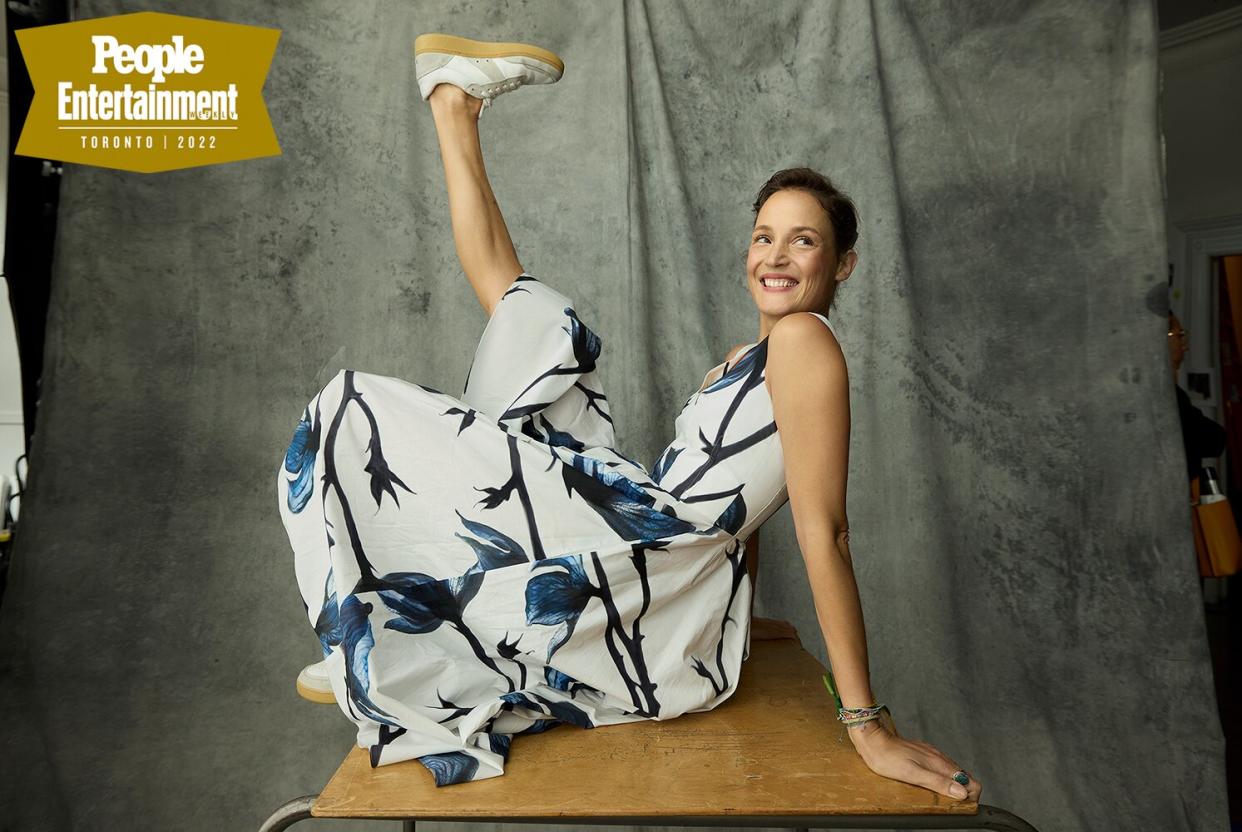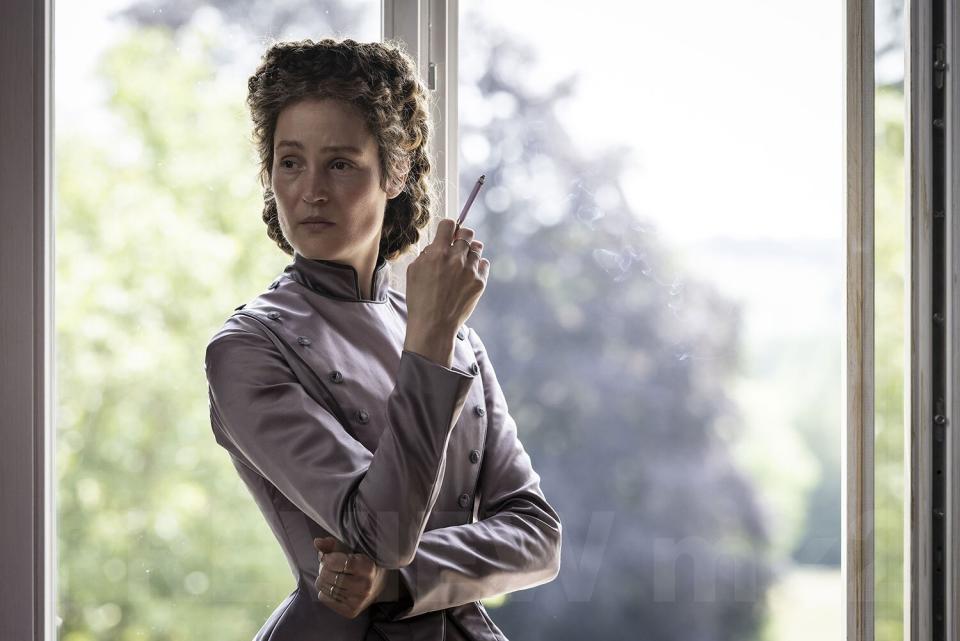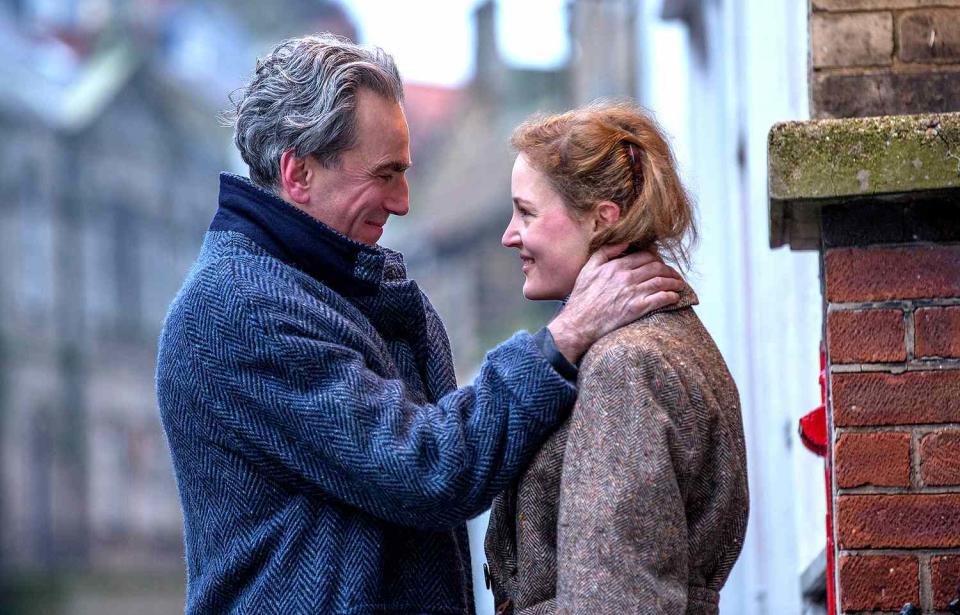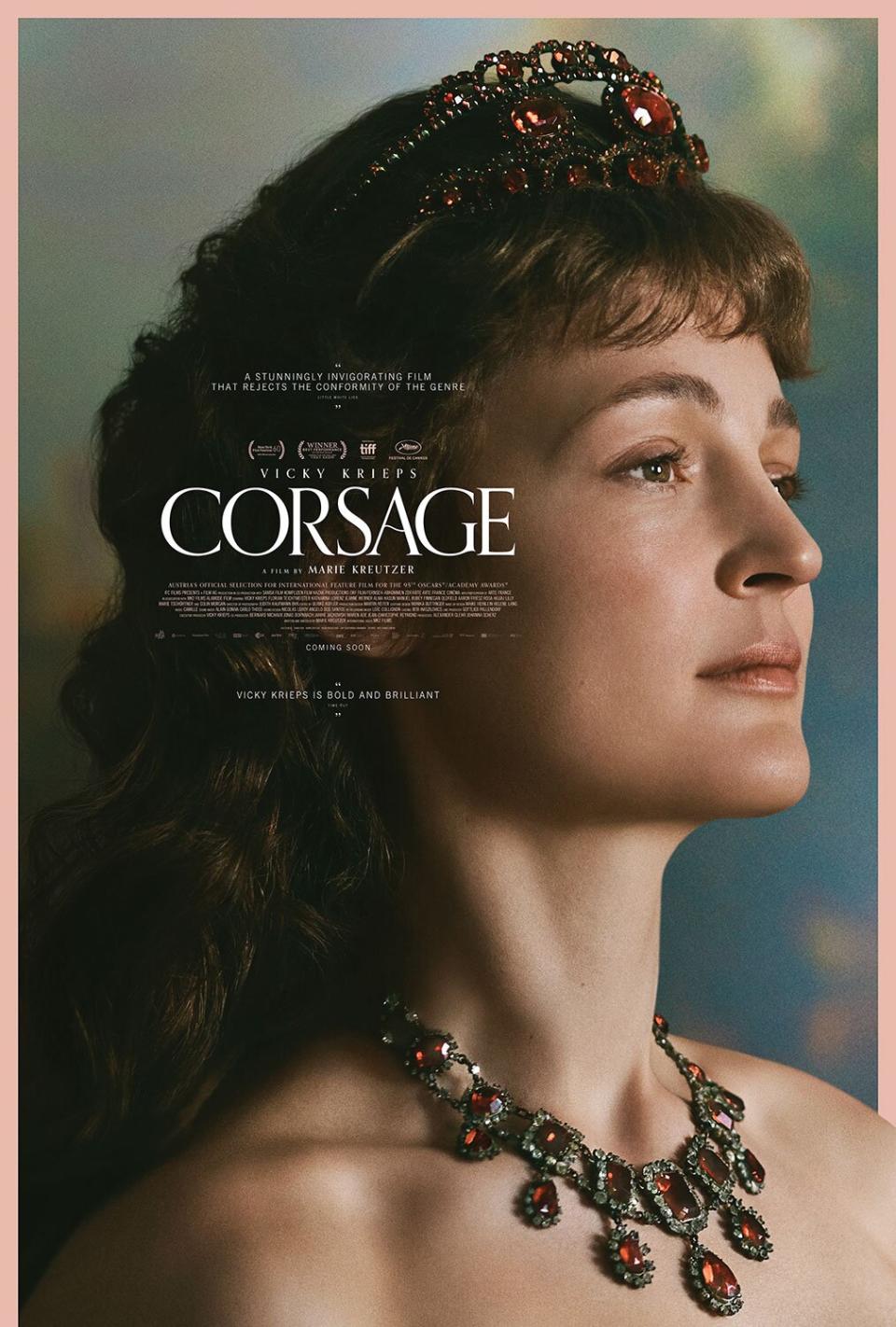Vicky Krieps on Embracing Her Inner Rebel for Corsage : 'I Always Had Trouble Fitting In'

- Oops!Something went wrong.Please try again later.
- Oops!Something went wrong.Please try again later.
- Oops!Something went wrong.Please try again later.
Ari + Louise
Vicky Krieps is not your average royal as Empress Elisabeth of Austria in her new movie Corsage.
The Phantom Thread actress, 39, plays the bold real-life figure in Marie Kreutzer's critically acclaimed period drama about the 19th century royal (nicknamed Sisi) who rebelled against what was expected of her as a public figure.
PEOPLE caught up with the Luxembourgish-German actress to discuss the rebellious spirit she shares with Elisabeth and much more.
Corsage is now playing in select theaters.
PEOPLE: What drew you to wanting to play Empress Elisabeth?
I read her biography at the age of 15 because my neighbors, they had it. I was fascinated of this whole idea of the perfect princess, especially having grown up in a different way. My mother gave me the chance to grow up free from all these images. She was very emancipated and showed me how to climb on a tree instead of how to wear a dress. So I was very free in that sense and in the same time suspicious of it, this princess imagery.
[The biography] stayed with me, this mystery of what happened behind the facade. Because you would read she was cranky, or you would read she was so eccentric. And she was writing so much and was crazy about her figure. And I always thought, but why does someone do that?
And then I became a grownup and I had my life. And I was in Vienna making a movie with Marie. It was called We Used to Be Cool. And there, we both said we would love to work together again because we could immediately feel that we have a connection and that we both allow ourselves to think freely and outside of the box. And then I said to her, we should make a movie about Sisi because I think there's no fair portrait of her yet.
RELATED: 'Phantom Thread' 's Vicky Krieps Is Living the 'Dream': Here Are Five Things to Know About Her
Is this your first time willing a project into existence?
Yeah, I think so. Yes. It was big, for myself, a big part of my own emancipation of my own life. Because I always had trouble fitting in to every structure, like when I went to school, in high school. I just naturally tend to rebel. And because there's something about this, the way we live, something about the structures we have built, that, to me, always seems fake and something that hurts most of the people. Yet we stick with it.
And I think choosing this story and following it and going with it, was my way of saying, "Well, I want to show it this way." In Alma, you already have it a little bit in Phantom Thread, because Alma, there are many things in the character that were not exactly written that way. There are things that I say, like in the dinner scene when I reply to him [Reynolds Woodcock, played by Daniel Day-Lewis] and I say, "You and your people and your walls." And that was also Vicky rebelling against this. This is the famous actor and now we all have to whisper when he enters the room.
I'm always rebellious against anything someone tells me, "No, no, Vicky. This is the rule, and this is how we do it." And this movie, Corsage, is just one big gesture, freedom gesture of mine.
Where do you get that rebellious nature from?
My mom to this day, she's the biggest rebel I know. But she's the kind of rebel who, not being able to live it to her full potential, suffered from it more than anything. I saw her suffer a lot from it. But she was definitely a big rebel. But the combination is that my grandfather was in the camps, being a resistant in the Second World War and he then became a rebel. And so he was this big raging freedom fighter, in a way. And my mother was this raging rebellious woman who'd always wear men's clothes. And she looked like Bob Dylan when I grew up. She had this short curls and always a suit, smoked the hell out of everything.

Courtesy Felix Vratny/IFC Films
The movie is also embracing my grandmother, embracing my mother, embracing all these women inside of me. And at the same time, breaking free of it and saying, "But if I want to, I can pull my tongue. And no one will stop me."
You became famous yourself after making Phantom Thread. How was navigating your new fame at the time?
I had to go and do my own things for a while. I couldn't have done a Hollywood film after. I think it would not have worked. They wouldn't have understood me then because I think I needed a movie to express it in the right way. This idea of, "Oh no. This is guy, he's important, and he will tell you what to do because he's important. Or she's more important than she is, and this is why she can tell her what to do."
I think this is something that we have misused and it's no one's fault. It's just what we've grown into as a society. And I did have trouble sometimes making myself understood in the right way. People thought sometimes it's ignorance because I'm not interested in being a good actor, for instance. I don't. I want to go and explore and I want to play, but I only want to play because I want you to play.
I want to go explore so that you have a question and I want you to question me. And I want you to maybe even not like me so that we have a discussion... and then we can take it from there.
Did Daniel Day-Lewis enjoy collaborating with the way you approach your roles?
Yes, we had a very interesting relationship because I came to that set deciding to not prepare and to just be there and not know anything about his method more than what I knew. And that was, I think, so interesting. Because he was this overly, perfectly prepared and very intelligent artist. He is really. Spiritual in a way too.

Laurie Sparham/Focus Features
And there I was like a child just looking at him, going, "Hi, who are you? What do you want to do?" And his method to me was an invitation to a game and saying, "Let's play like this." And I would go, "Okay. Let's play like this. That's fine."
And then it became this dance and I was rebellious. But even for real, I was even rebellious against him, in a way. I was always questioning him and his ways of doing. But then he would take that and turn it and do something again. I think it was intended to be, maybe, a power struggle, but it became a dance, really.
We're back in awards season with Corsage opening over the holidays. Phantom Thread came out around the same time in 2017 and was nominated for several Oscars. Did you enjoy the awards race?
I didn't like it. I felt like this is so weird, I would prefer not to be part of it then. And now, I can be part of it because I know I can do it my way. I think before, I thought, "Oh my God, I will have to become these people, or I will have to do as I'm told." And now, I don't. I think rather the opposite. I think it's refreshing. It's fun to talk about it in a different way and to say, "Well, no, I'm actually not interested in the competition. I'm not interested, but I'm interested about talking with movies. And there's so many beautiful ways we can talk about this, and so many interesting things we can talk about that is not my garment or what I'm wearing or what I like to eat for breakfast."

The movie's called Corsage. What was it like wearing all those corsets over the course of the film? Did it put you in character, or was it just torture?
It was so painful that I couldn't breathe, I couldn't eat, I couldn't stand, I couldn't sit. I was cranky and itchy all the time. All I could think of was smoking, which I didn't. But I remember thinking, I know why people smoke. This is so nice. Just something to ease the itch, to just have something to do because there's nowhere to go with this thing.
But I found little ways to sustain my own. I stayed a lot by myself. I wasn't trying to even relate to a different being and joke around. I would do that in the evening, but during the shooting there I would just mainly isolate, stay to myself, or go on long walks. And then I would wear a jumpsuit. I had a big jumpsuit I would wear over the corset. Because taking the corset off, I would never put it back on in a day. I had to stay in it. And I put the jumpsuit over and I went on walks. And I even climbed on trees.
Sometimes I cried before putting it on.

